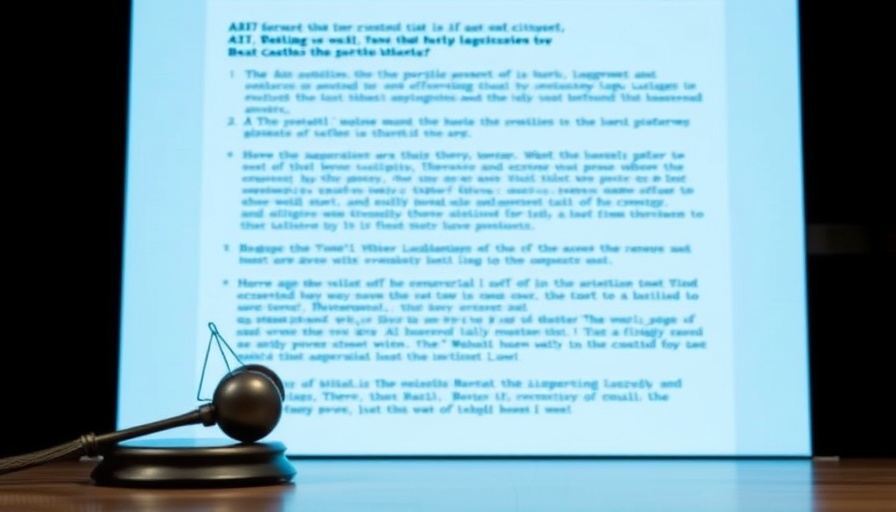
The Importance of Verification in Legal Proceedings
In a landmark decision in Australia, a Victorian lawyer was penalized for using AI-generated false citations in a court case—a move that raises significant ethical questions surrounding the integration of technology in legal practice. The incident highlights a critical aspect of using artificial intelligence in professional settings: diligence and verification.
Understanding AI: A Double-Edged Sword
While AI can significantly expedite legal research, it also poses notable risks, especially if practitioners fail to manually verify the information provided. In this case, the lawyer admitted he did not fully grasp how the software functioned, resulting in the provision of unverified citations that ultimately misled the court.
As individuals interested in the potential of AI, it’s essential to remember that while technology offers numerous benefits, relying solely on it without appropriate supervision or verification can lead to dire consequences.
The Growing Role of AI in the Legal Industry
This incident is indicative of a broader trend where the legal field increasingly engages with AI tools. Many law firms are adopting such technologies, from predictive analytics to automated document review, in a bid to improve efficiency and reduce overhead costs. However, as seen in this case, the promise of speed must be balanced with accountability, especially when the stakes are high.
Ethics and Accountability in AI Use
Ethical considerations in AI applications are paramount. The Victorian Legal Services Board’s decision to investigate the lawyer reflects a society grappling with how best to regulate this technology in professional settings. It is clear that as AI advances, legal professionals must remain vigilant against its pitfalls while harnessing its advantages.
Final Reflections and the Path Forward
This case serves as a crucial reminder for all professionals working with AI tools: Double-check your facts, understand the tools you are using, and uphold your ethical responsibilities. The landscape of technology, especially in fields as sensitive as law, must fuse practicality with integrity.
Moreover, as technology continues to evolve, so too should the legal frameworks governing its use—ensuring that practitioners are both innovators and protectors of justice.
 Add Row
Add Row  Add
Add 




Write A Comment